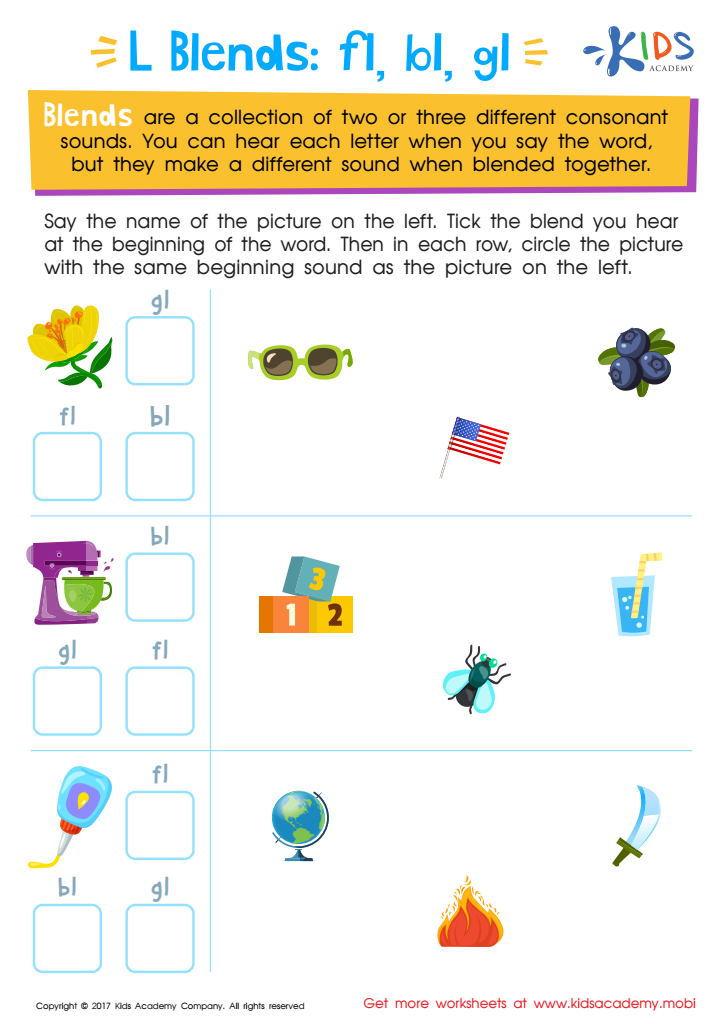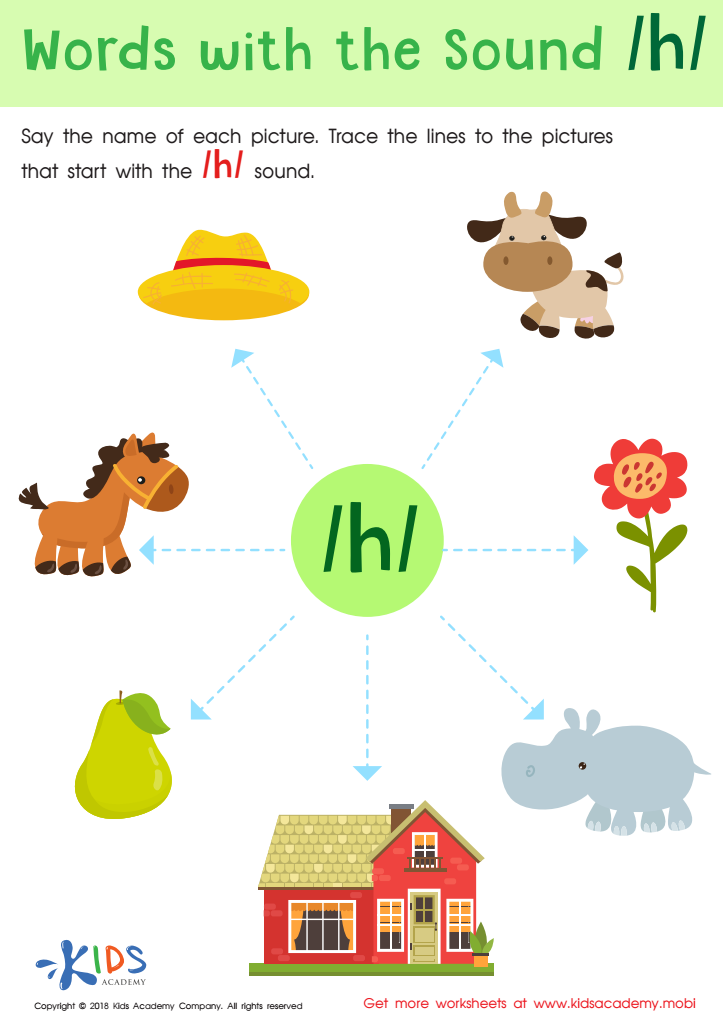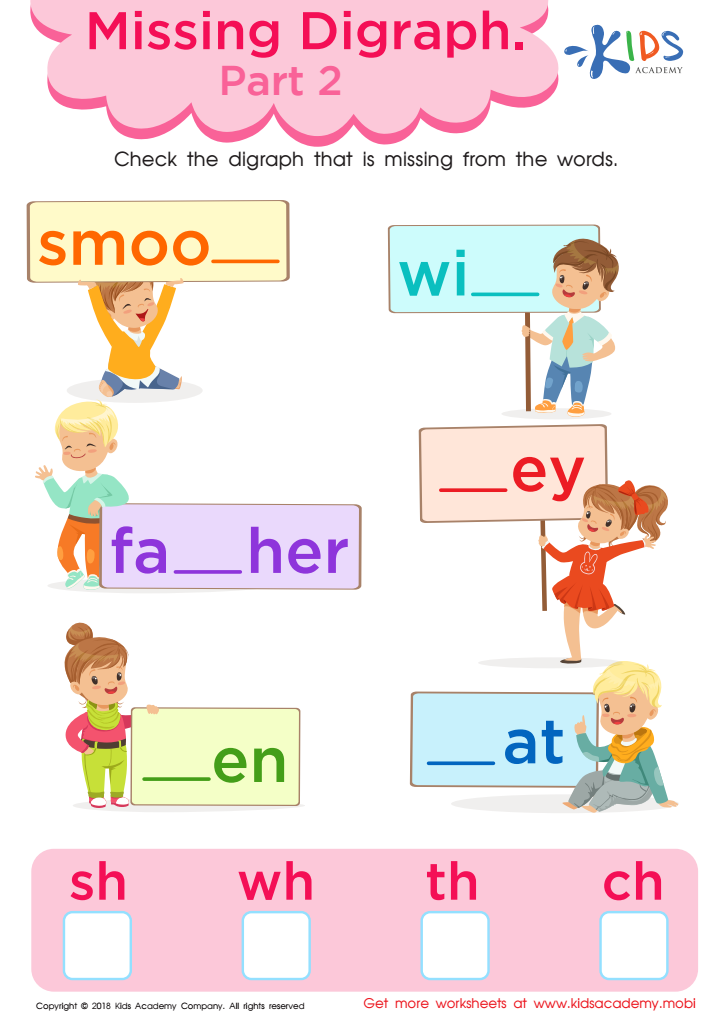Vocabulary expansion Normal Consonants Worksheets for Ages 4-7
4 filtered results
-
From - To
Enhance your child's vocabulary with our "Vocabulary Expansion Normal Consonants Worksheets" designed specifically for ages 4-7! These engaging worksheets focus on normal consonants, helping young learners develop their language skills in a fun and interactive way. Each activity is tailored to support phonemic awareness, allowing children to recognize and use consonant sounds effectively. Our printable resources include various exercises that encourage letter recognition, word building, and descriptive language practice. Perfect for homeschooling or classroom settings, these worksheets inspire creativity and boost confidence in young learners as they explore new words and concepts. Unlock the joy of learning with Kids Academy!


Blending Consonants: "Fl", "Bl" and "Gl" Printable


Words with sound h Reading Worksheet


Missing Digraph: Part 2 Worksheet


Words with sound f Reading Worksheet
Vocabulary expansion in early childhood, particularly involving normal consonants, is crucial for children aged 4-7 for several reasons. First, a robust vocabulary enhances communication skills, enabling children to express their thoughts and feelings more effectively. This age period is foundational for language development; thus, focused efforts on vocabulary acquisition can lead to greater success in literacy and academic achievement later on.
Moreover, mastering consonants, which form the backbone of speech, helps children in phonemic awareness—the understanding that words are made up of individual sounds. This awareness is a key predictor of reading success. As children learn to articulate normal consonants correctly, they also build confidence in their speech, aiding in their social interactions and relationships with peers.
Additionally, vocabulary development fosters cognitive skills. When children encounter new words, they expand their understanding of the world, enhancing critical thinking and comprehension abilities. This growth is vital as they begin their educational journey, preparing them to grasp more complex concepts as they progress in school.
Overall, by promoting vocabulary expansion that includes normal consonants, parents and teachers set the stage for better communication skills, literacy development, and social-emotional growth, ensuring a well-rounded foundation for lifelong learning.
 Assign to My Students
Assign to My Students













